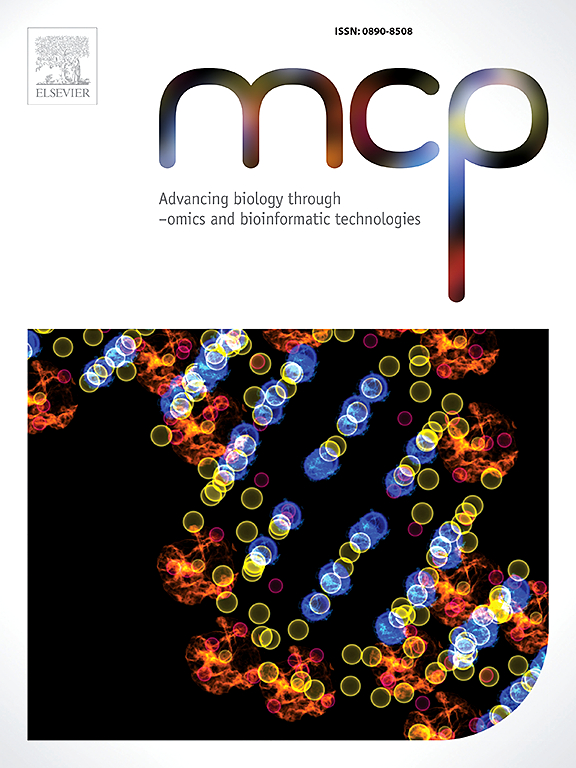Honokiol通过上调FTO和Smad6来促进自噬,从而抑制人骨肉瘤MG63细胞的迁移。
IF 2.3
3区 生物学
Q3 BIOCHEMICAL RESEARCH METHODS
引用次数: 0
摘要
背景:骨肉瘤(Osteosarcoma,OS)是一种常见的原发性骨恶性肿瘤,多见于儿童和青少年,存活率低,严重威胁患者生命。厚朴酚(HKL)是厚朴的主要活性成分,具有显著的抗肿瘤作用。本研究旨在观察HKL对MG63细胞的自噬和迁移作用,并探讨其作用机制是否与FTO和Smad6有关:方法:首先体外培养MG63细胞,用不同浓度的HKL干预,用CCK8检测细胞活性,用流式细胞仪检测细胞凋亡,用划痕试验检测细胞迁移能力,用Transwell试验检测细胞侵袭能力,用Western blot检测MMP2、P62、LC3 I/II、FTO和Smad6蛋白表达:结果:香港六合彩资料大全抑制了 MG63 细胞的活性,而且这种作用与剂量和时间有关。虽然 HKL 对细胞凋亡和侵袭能力没有明显影响,但它可以通过促进细胞自噬和抑制迁移等作用发挥作用。香港六合彩资料大全增加了FTO、Smad6、MMP2、LC3 I/II和P62的蛋白表达水平,而沉默Smad6后这一效应降低:结论:HKL通过增加FTP和Smad6的表达诱导MG63细胞自噬并抑制细胞迁移。由此可见,HKL可能是一种治疗OS的有效药物。本文章由计算机程序翻译,如有差异,请以英文原文为准。
Honokiol inhibits human osteosarcoma MG63 cell migration by upregulating FTO and Smad6 to promote autophagy
Background
Osteosarcoma (OS) is a common primary malignant tumor of bone, most commonly seen in children and adolescents, which has a low survival rate and is a serious threat to patients' lives. Honokiol (HKL) is the main active components of Magnolia officinalis, which have significant anti-tumor properties. The aim of this study was to observe the autophagic and migratory effects of HKL on MG63 cells and to investigate whether the mechanism of action was related to FTO and Smad6.
Methods
Firstly, we cultured MG63 cells in vitro and intervened with different concentrations of HKL to detect cell activity by CCK8, apoptosis by flow cytometry, cell migration ability by scratch assay, cell invasion ability by transwell assay and MMP2, P62, LC3 I/II, FTO and Smad6 protein expression by Western blot.
Results
HKL inhibited MG63 cells activity and that this effect was dose and time dependent. Although there was no significant effect on apoptosis and invasive ability, HKL could act through effects such as promoting cell autophagy and inhibiting migration. HKL increased the protein expression levels of FTO, Smad6, MMP2, LC3 I/II and P62, and this effect was reduced after silencing of Smad6.
Conclusions
HKL induced autophagy and inhibited cell migration in MG63 cells by increasing the expression of FTP and Smad6. It can be seen that HKL may be a promising drug for the treatment of OS.
求助全文
通过发布文献求助,成功后即可免费获取论文全文。
去求助
来源期刊

Molecular and Cellular Probes
生物-生化研究方法
CiteScore
6.80
自引率
0.00%
发文量
52
审稿时长
16 days
期刊介绍:
MCP - Advancing biology through–omics and bioinformatic technologies wants to capture outcomes from the current revolution in molecular technologies and sciences. The journal has broadened its scope and embraces any high quality research papers, reviews and opinions in areas including, but not limited to, molecular biology, cell biology, biochemistry, immunology, physiology, epidemiology, ecology, virology, microbiology, parasitology, genetics, evolutionary biology, genomics (including metagenomics), bioinformatics, proteomics, metabolomics, glycomics, and lipidomics. Submissions with a technology-driven focus on understanding normal biological or disease processes as well as conceptual advances and paradigm shifts are particularly encouraged. The Editors welcome fundamental or applied research areas; pre-submission enquiries about advanced draft manuscripts are welcomed. Top quality research and manuscripts will be fast-tracked.
 求助内容:
求助内容: 应助结果提醒方式:
应助结果提醒方式:


